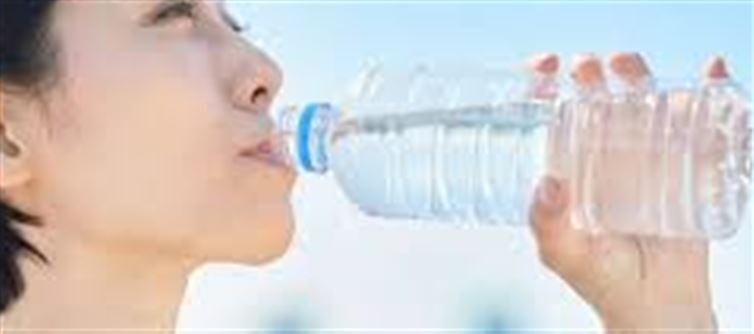
It's a common assumption that bottled water, once sealed, is always safe to drink. But what happens when that bottle has been sitting around for days, weeks, or even months? Whether you've left it in your fridge, your car, or tucked away in your bag, many people don't think twice before sipping water that's been stored for an extended period. However, experts suggest that the safety of drinking water left in a bottle for a prolonged period can be more complex than it seems.
Does Water Expire?
Technically speaking, water doesn't expire. Pure water is made up of H₂O molecules, which don’t go bad in and of themselves. However, the concern lies not in the water itself, but in the conditions under which it’s stored and the type of bottle it's in.
What Happens When Water Sits for Too Long?
1. Bacterial Growth: One of the biggest risks associated with drinking water left in a bottle for a long time is the growth of bacteria. Once a bottle is opened, microorganisms from your mouth, hands, or the environment can enter the bottle, creating the potential for contamination. Even if the bottle is tightly sealed, the water can absorb dust, bacteria, or mold if it's not stored properly. In warm environments (like a car), bacteria can multiply faster.
2. Plastic Leaching: Many bottled waters come in plastic bottles that can start to degrade over time, especially when exposed to heat or sunlight. BPA (Bisphenol A) and other chemicals in plastics have been known to leach into liquids after prolonged exposure to warm temperatures. This process could cause the water to take on an undesirable taste and potentially affect your health in the long run.
3. Taste and Odor: Even if no harmful bacteria grow, water that’s been sitting in a bottle for too long may develop a stale or off taste. This can happen because of the breakdown of plastic components or from exposure to air, which can oxidize the water and make it taste flat or "plasticky."
4. Temperature Sensitivity: If a bottle of water is left in a hot car, for example, the water's temperature can increase, and with it, the rate of bacterial growth. Warm environments also encourage the breakdown of plastic, which can lead to leaching.
How Long Can You Safely Drink Bottled Water Left Out?
Experts typically agree that unopened bottled water can last indefinitely if stored properly, but opened water bottles should be consumed within 3-7 days. This time frame can vary depending on the environmental conditions and how the bottle has been handled. If it's been sitting in your car on a hot day, it's better to toss it.
Guidelines to Follow:
1. If the bottle is unopened, it’s safe to drink water that’s been stored for months or even years, provided the bottle hasn’t been exposed to extreme temperatures or direct sunlight.
2. Once opened, aim to drink the water within a week to minimize any potential bacterial growth. This is especially true if the bottle has been left out at room temperature or in a warm environment.
3. If you notice any odd taste, smell, or visible mold inside the bottle, discard the water immediately.
What Experts Recommend:
· Keep Bottles Sealed: If you don't plan to drink the water immediately, keep the bottle sealed to prevent contamination.
· Refrigerate After Opening: To keep water fresh, experts recommend storing it in the refrigerator after opening. Cold temperatures slow down bacterial growth and maintain the quality of the water.
· Avoid Heat Exposure: Don't leave bottled water in hot environments (like your car) for extended periods.
· Check the Expiration Date: While water itself doesn’t expire, plastic bottles may have an expiration date, as the materials used to make them can degrade over time.
Conclusion:
While it's not inherently dangerous to drink water that’s been sitting in a bottle for a week, the key concerns are bacteria, plastic degradation, and the storage conditions. Ideally, once you open a bottle, try to drink it within a few days to a week, especially if the bottle has been exposed to heat or sunlight. If in doubt, it’s always safer to pour it out and grab a fresh one.
Disclaimer:
The views and opinions expressed in this article are those of the author and do not necessarily reflect the official policy or position of any agency, organization, employer, or company. All information provided is for general informational purposes only. While every effort has been made to ensure accuracy, we make no representations or warranties of any kind, express or implied, about the completeness, reliability, or suitability of the information contained herein. Readers are advised to verify facts and seek professional advice where necessary. Any reliance placed on such information is strictly at the reader’s own risk..jpg)




 click and follow Indiaherald WhatsApp channel
click and follow Indiaherald WhatsApp channel